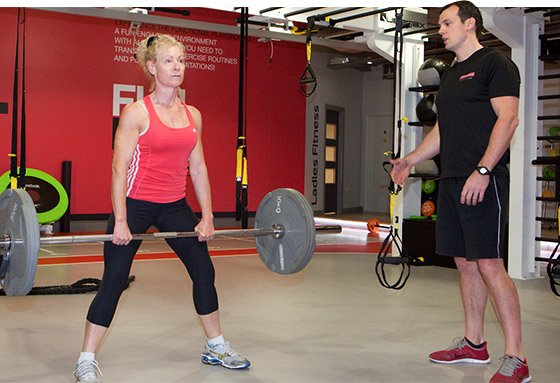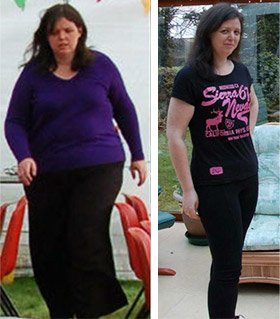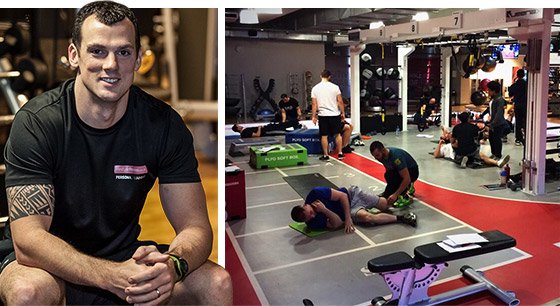Fitness in the United Kingdom is no different from other nations. Trainers still have to guide people through programs and clients still need to put in the effort to get in shape. These are common truths no matter where you live.
In Manchester, Dan Barker makes a living supervising two dozen personal trainers. He's learned a lot over the years, but perhaps his greatest lesson is that simplicity and basic progressions are the keys to any success story. Learn about his indoor boot camp on snow and how he helps regular people succeed in achieving fit bodies.
Tell us about your personal and professional background.
I struggled academically in school, and sport was something I excelled in. After I went on to college I then got a place at the University of Bath, where I studied sports performance and coaching. I have since worked in three different gyms as a personal trainer. Currently I am managing Lifestyle Fitness, which is the best gym in the city of Manchester and has a strong team of 25 personal trainers. I am also happily married with an 18-month-old daughter.
You were a national swimmer and clearly trained at a high level. Can you tell us about your swimming background?
Swimming had a massive impact on my early life. I started swimming at the age of 4 and worked my way up the swimming groups until I was spotted and asked to join my local competitive club. The training was tough, we would do between 3-5,000 meters per session plus resistance training. At the age of 14, I was doing 10 2-hour sessions per week.
My dad used to drop me off at 5:30 a.m. to train. I would then do a full day at school and then another two hours 4:30-6:30 p.m., home, tea, bed, and then do it again the next day. I definitely got my work ethic from swimming and it gave me a lot of confidence at a time when I struggled at school.
When and why did you become a trainer?
After leaving the university I wanted to get into swimming coaching, but really didn't enjoy it. I had always loved training and wanted to do a job that made a difference in people's lives. Personal training was the obvious choice and I haven't looked back since.

What is your training style? What methods do you use?
I'm not really sure what my style is. I use whatever tool that will fit the client and gets the job done. I typically use corrective exercises with strength work, but I also have clients who enjoy kettlebells and unconventional fitness methods. One area that I am concentrating on more recently is nutrition.
You set up the world's first Indoor Boot Camp on snow, which got some press. Can you tell us a little about this camp?
I wanted to set up a boot camp to make extra money and I struggled to find a decent location. The gym I worked in at the time was opposite an indoor snow center, so I just had the idea and approached them. We got a lot of press for it, appearing on local TV and in national newspapers and magazines. We also trained Stockport County football club as part of its pre-season.

Who are some of your most notable clients?
British soap actors and actresses and professional boxers.
Some of your clients are actually other personal trainers who you train and mentor. How has this worked out? Can you explain what you can give to other trainers to help them better themselves?
I work as a personal training manager. I supervise 25 personal trainers. Being a trainer didn't come easy to me at first; I could give solid sessions but struggled at the business side of it and approaching strangers! This is something I have had to work hard at and I feel it's why I can help other trainers in a similar position.
Every trainer is different, with different training methods. I don't try to change the way a trainer works. I just try to make them a better version of themselves. I believe if a trainer puts more of their personality into a session rather than trying to be someone else they get a lot more success out of it.

Do you have examples of success stories from clients using your methods?
One client lost 8 stone (112 pounds) in 12 months. She had come to me after traveling home for Christmas, when she couldn't fit into the plane seat! She is now one of my fittest clients and can deadlift 110 kg (240 pounds). She is also considering a career in personal training.
Another was a well-known TV actress. I got her in shape after 10 weeks of having a baby. Her her opening scene was a bikini shoot.
What are the most common mistakes a client makes?
Most people are not consistent enough and seek advice from many different people, usually until someone tells them what they want to hear. People would reach their goals a lot quicker if they just followed sound advice of one or two professionals instead of listening to their friends, family, or hair dresser!
What are the most common mistakes you believe a trainer makes?
Not listening to their clients or not making their programs client-specific. I've seen trainers get a program off a CrossFit app, then charge the client $65 (£40) for the session!
Do you set your clients up with a full diet and training plan for them to follow by themselves?
Of course, it is not about the hour or two they spend with me. Real change comes from the other hours spent in the gym, eating correctly or making sensible lifestyle choices.

How do you keep your clients motivated?
Clients bring me biweekly reports that ask questions about every aspect of their training, nutrition, and sleep patterns and also to re-evaluate their goals. Some clients need micromanaging so they email me a daily report of their meals with pictures and training.
Do you train men differently than women?
Generally I find female clients work harder. Usually I give female clients less rest between sets because at first they are not used to training at the same intensity as men and recover quicker, but apart from that, there's no difference really.
How have your changed your approach to clients over the years?
The more experienced I become, the more basic my exercise and program design seems to become. New trainers feel as though they have to come up with really funky exercises or loads of different elements to a program. As long as it's progressive, the basics seem to work best.

Do you feel there is a difference between trainers in the U.K. versus trainers in the U.S?
I would say about 70 percent of the blogs and websites I read come from the United States, although we have some great trainers like Phil Learney, Rick Moylan, and my colleague Andrzej Roszkowski.
How do you start a client on a new program? Do you do some kind of assessment?
All my clients go through a posture and lifestyle assessment.
Do you feel just as much like a psychologist as you do a personal trainer?
Definitely, and it's no different managing trainers!
